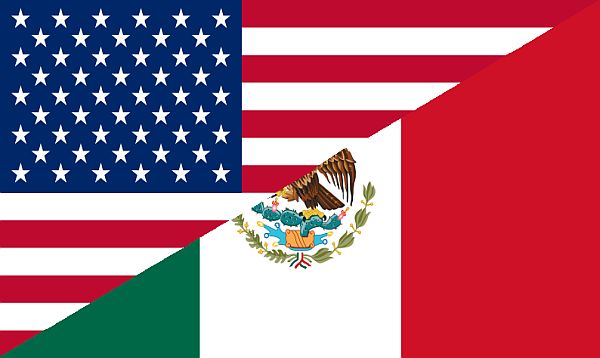Only 28 percent of Americans have a favorable view of Mexico, according to a study released by American University.
Given the deep ties between the US and Mexican economies, and the increasingly significant stake Americans have in Mexico’s success, that’s scary. Consider:
• Mexico buys more US products than any country in the world but Canada – more than $200 billion worth in 2012.
• 30 US states export at least $1 billion per year in goods to Mexico and 46 export at least $100 million.
• Trade with Mexico supports 6 million US jobs.
• US exports sales to Mexico have grown by $52 billion in the wake of the financial crisis, more than to any other country in the world since 2010.
• Since 2010, export growth to Mexico has supported approximately 265,000 additional jobs in the United States – one in 28 of the 7.5 million jobs the White House estimates have been added since 2010.
Looking at rising costs of labor, transportation, and other industrial inputs in other parts of the world, the Boston Consulting Group, a global management consulting firm, projects that by 2015 "manufacturing in some parts of the US will be just as economical as manufacturing in China."
This development is strongly supported by the complementarity of the US and Mexican economies, where integrated North American supply chains enhance both countries’ competitiveness. As the Reshoring Initiative’s Harry Moser notes, "When Mexicans produce something in Mexico, they buy machinery, supplies, and the components to do so from the United States."
No one can dismiss the wave of violence that has plagued Mexico in recent years, however, the incidences of violence belie the country’s sophistication and modernity.
Mexico is a major player in today’s globalized markets: It is the second largest economy in Latin America and the 12th largest in the world. In areas like Central Mexico'a Queretaro - where aerospace companies mingle with automotive and express delivery giants, and firms like General Electric do engineering design for a global platform - the best of old world charm and new world capability are offered.
Meanwhile, global hotel chains are adding outlets in Mexico as tourism continues to boom.
At a time when the US economic recovery has been slowed by politics, Mexico has embarked on a series of historic reforms related to education, labor, telecommunications, taxes, and prospectively energy, made possible by a "Pact for Mexico" that has seen all three of Mexico’s major political parties working together. And while Mexico currently remains heavily dependent on the US economy – more than 80 percent of the country’s exports go North (containing on average 40 percent US content) – it is not difficult to foresee a future where fast-rising domestic growth makes Mexico in turn a significant engine for the US economy.
With the close and ever deepening ties between our countries, what’s truly frightening is that ignorance of these developments to our South could cost Americans a historic opportunity to engage Mexico as a strategic ally, and put ourselves back in the driver’s seat of the global economy.
Original Story at OregonBusinessReport.com


